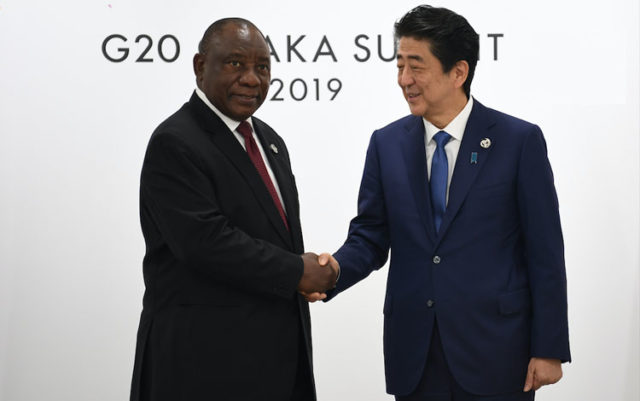
The Tokyo International Conference on African Development (TICAD) has always been a major forum for the promotion of African development. The seventh edition was no different. Organized jointly by the government of Japan, the United Nations (UN), the World Bank (WB), the United Nations Development Program (UNDP) and the African Union Commission (AUC), the event brought together eminent people and provided a forum for cross-fertilization of ideas and concepts for the development of the region.
Launched in 1993 to create a forum for high-level policy dialogue between African leaders and development partners, the seventh edition of TICAD will be held on 28th – 30th August, 2019 at Pacifico Yokohama, Yokohama city, Japan.
Held in every five years, the conference will bring together a wide range of stakeholders, including African and Japanese governments, international and regional organizations, donor nations, private sector companies and civil society.
TICAD V in 2013, which was held in Yokohama and was attended by the leaders of more than 50 African countries, marked something of a breakthrough in size and scope. The sixth edition of TICAD was the first to be held in Africa, in Nairobi. Attended by a record 11,000 people and 77 organizations, like Japanese companies and universities, policy makers etc, the Conference focused on promoting structural economic transformation, promoting resilient health systems and facilitating social stability for shared prosperity.
Tokyo’s focus on man power training in Africa stands out and it has a definite edge over other countries involved in the development of the region. Japan’s involvement in Africa is often referred as an exercise to develop soft power in the continent focusing on diplomacy, social engagement and partnership. A case in point is the African Business Education Initiative for Youth (ABE Initiative), which was announced at TICAD V in response to the desire to develop human resources in both the public and private sectors, has developed deep roots in the continent offering African students the opportunity for professional education at graduate schools through internship training at Japanese companies. The total number of ABE initiative participants has reached at 1,219 students. Many Japanese companies, which have invested in African countries, help support localization and technology transfer, catalyzing local businesses to grow.










